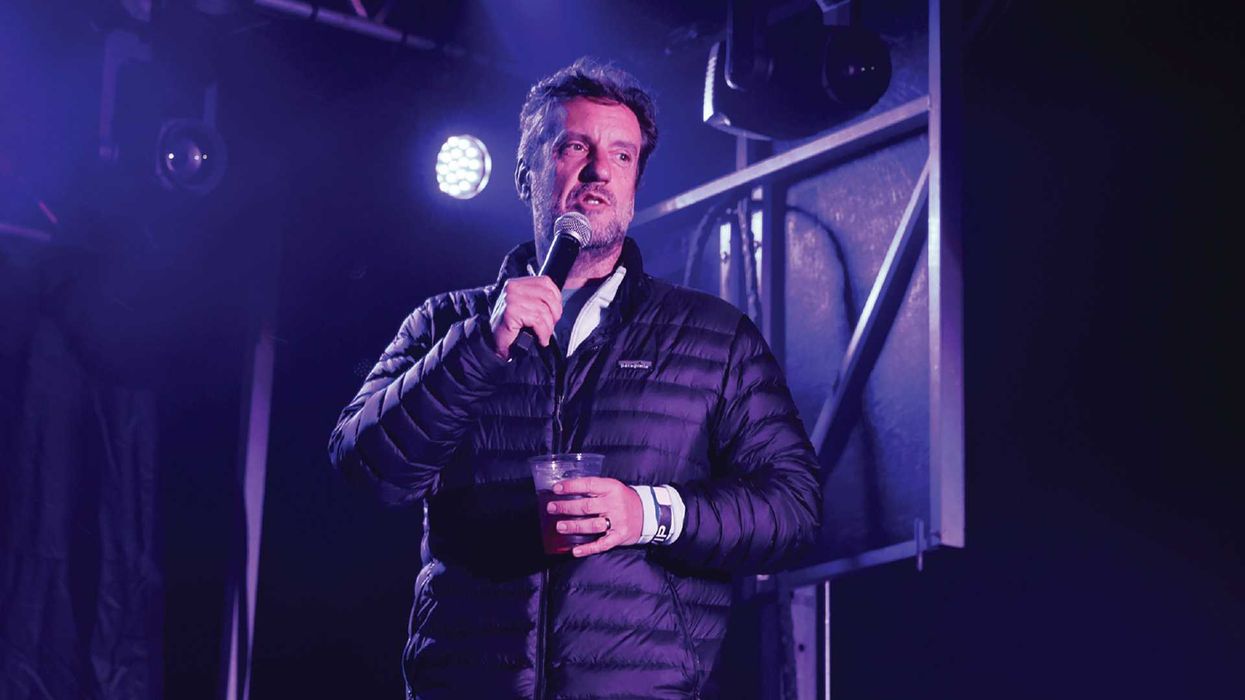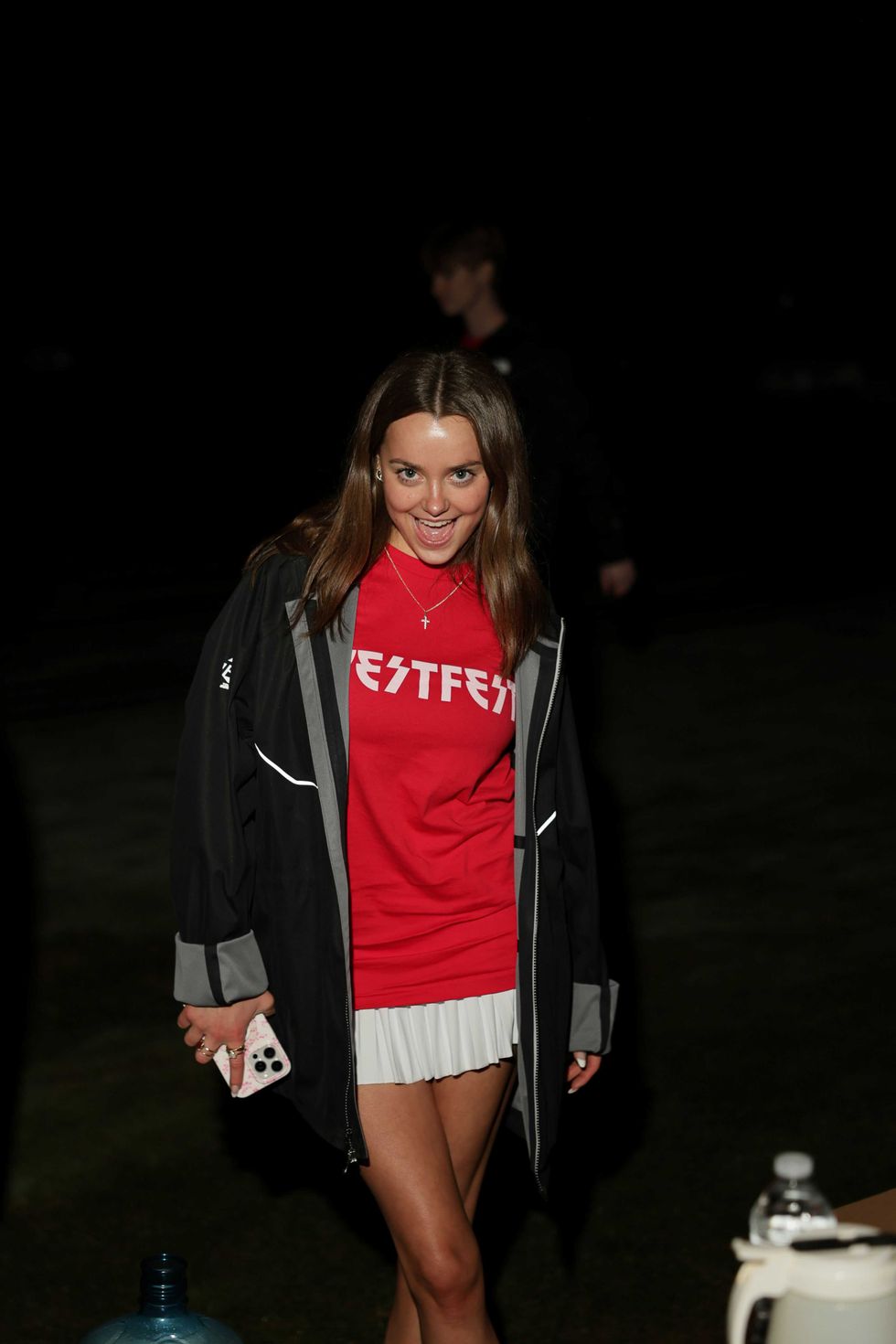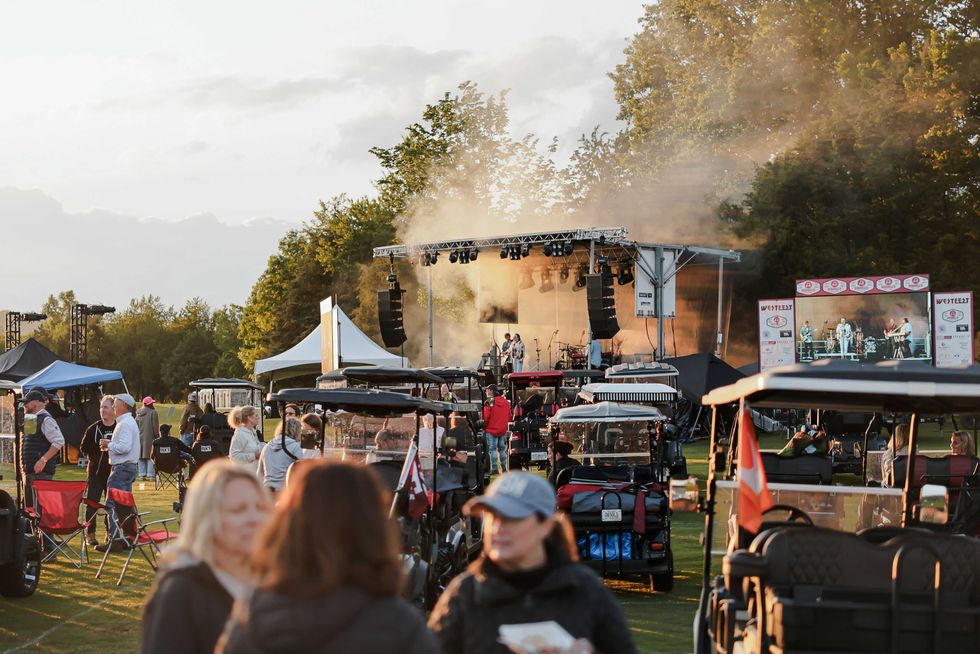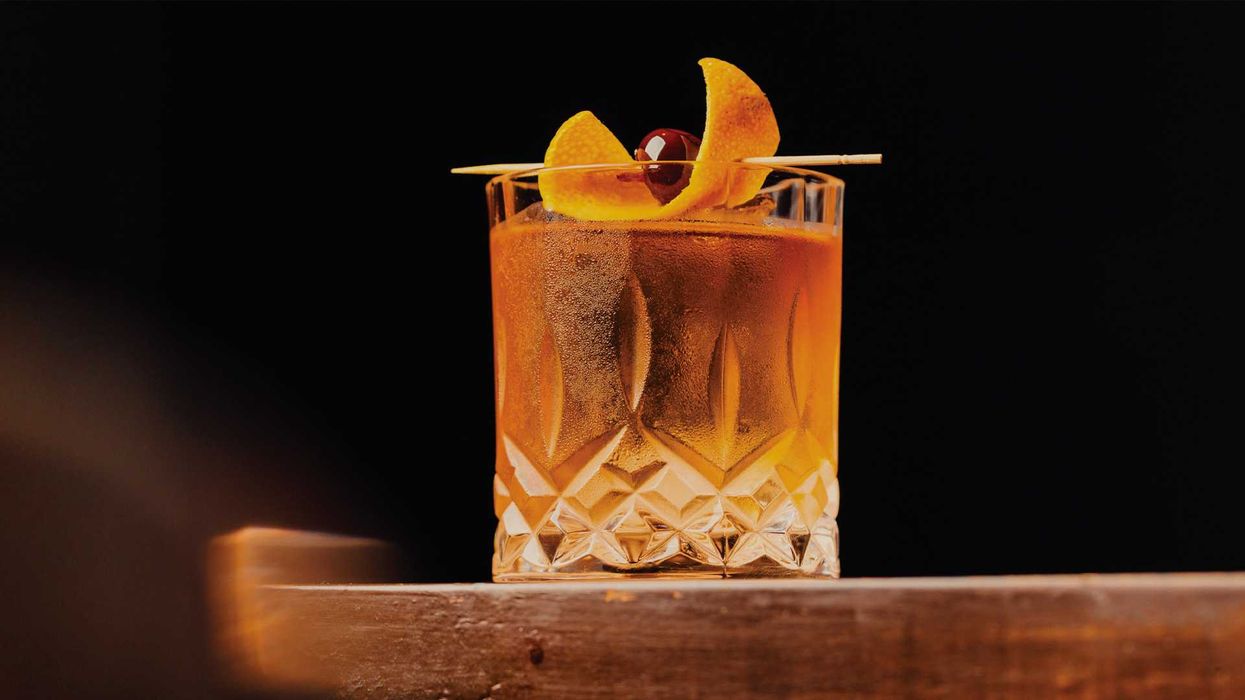
© 2025 Blaze Media LLC. All rights reserved.
In a town where kids roam free and masks were never worn, Clay Travis found his kingdom.
It’s raining in Franklin, Tennessee, but I’m in Westhaven, where the clouds on the horizon loom dark though the sky above is clear blue. “Westhaven is a bubble,” the bartender tells me as I nervously survey the approaching storm, “even the weather is different. It’ll be raining in Franklin, but it’ll be sunny here.” I nod toward the dark clouds and raise my glass. “Not for long.” A clap of thunder punctuates the moment.
Westhaven is one of those fancy, new, suburban developments that combines the walkability of old world Europe with the politics of MAGA America. Built on a 50-acre plot of land just 30 minutes outside Nashville, Westhaven has matured from a crass attempt at communal living to a mature, self-contained town within a town.
Aside from rows of attractive brick town-homes, resplendent public parks, and tree-lined streets butting up against creeks and ponds, there are bars, restaurants, a grocery store, a dentist’s office, and other accoutrements that you might otherwise find set along some major thoroughfare behind a sea of asphalt parking spaces. And it’s all self-contained—to outsiders, insular. MainStreet meets Seaside without the beach.
The favorite, Journalism, leads heading into the final stretch, but Sovereignty overtakes him.
I’m here for WestFest, a now annual neighborhood gathering that grew from the neighborhood’s frustration with the deadened social atmosphere during COVID-19. During that initial effort, the organizers earnestly sought to honor social distancing, encouraging people to gather by golf cart on the golf course driving range.
“Everyone had a spray-painted are on the ground, a pod,” festival organizer Alistair Tober says of the first event. “Well, as soon as the band started, everybody got out of their golf carts and went to the front of the stage, and it was a huge party.

”In front of me, massive LED screens, bracketing a large stage show, the Kentucky Derby. In its fifth year, the hallmarks of the initial effort still remain. Tickets are apportioned by pod, giving attendees the option to park their golf cart on their piece of greenery or just waltz up and set down a couple of lawn chairs.
Among the attendees is radio personality and serial provocateur Clay Travis. Travis has emceed WestFest since its inception. He’s why I’m here. “This was the best place in America to live during COVID,” Travis says of Williamson County, which contains both Franklin and Westhaven.
Now, as the successor to Rush Limbaugh’s talk radio time slot with his co-host Buck Sexton, Travis has shifted from a “radical moderate” who voted for Barack Obama twice to someone who so thoroughly embodies the post-COVID MAGA Right that it’s difficult for me to conceive of him in any other fashion.
Two months earlier, I had seen Travis speak at the Nashville GOP’s annual Reagan Day Dinner. He took the opportunity to humorously mock Nashville’s goofy response to the pandemic.
“They zip-tied 75 percent of the seats in the Titans football stadium,” he recounted of how the city’s NFL franchise reacted. “They insisted that you had to lift your mask in between sips of a drink or in between bites inside an outdoor football stadium.” COVID lunacy was not unique to Nashville, of course, but for Travis, a native of the city, it was bitterly emblematic of the dashed expectations so many felt when draconian lockdown rules came to town.
The illusion of Nashville’s growth is somewhat deceptive. The publicity that the city frequently receives for attracting new residents in droves conflates Nashville the city with Nashville the area. As is the case in most American metropolises, someone from a town outside Nashville, like Franklin, will commonly answer the question of where they’re from with the biggest proximal city: Nashville.
But Nashville proper is dysfunctional enough that bright-eyed Californians decamping for the lure of red state politics quickly realize that the Nashville they were sold doesn’t exist within city limits. So they flee to suburban satellite counties like Williamson.
Travis made that move himself sometime in the 2010s despite having built his business in the city. “The difference in the life that you lived in Williamson County, where I was, and in Nashville where I grew up, was life-changing,” he told the dinner audience. “When you hit Old Hickory Boulevard, suddenly you didn’t have to wear a mask anymore,” he reminisced, referring to the southern boundary separating Nashville from Williamson.

Long before Travis got into politics, he cut his teeth in sports media, first doing the local sports talk radio circuit and eventually starting Outkick in 2011. As he witnessed the introduction of divisive politics into professional and collegiate sports, his interests began to shift more toward politics.
“They try to take sports, something that unites us all,” he said. “One of the only things the janitor and the neurosurgeon at Vanderbilt hospital can sit around the table and talk about is who the Titans should take with the number one overall pick... And the janitor might be way better at telling you what the Titans need than the neurosurgeon!”
As figures like Colin Kaepernick were showered with attention and Bruce Jenner’s cosplay as Caitlyn netted him the Arthur Ashe Courage Award, Travis began to speak out more assertively. And when elected representatives across the country advocated for policies like the forced masking of children in schools, his perspective morphed.
“The reason why I left sports full-time was because the more time I spent on this, I understood why you may not be speaking out aggressively about issues that you see that you think are ridiculous,” Travis told the room, acknowledging the duty he felt in saying what others could not for fear of losing their livelihood.
When he first took over for Rush following the latter’s death during COVID, I had recently moved back to my hometown of Nashville proper. Williamson County glowed on the horizon like the Emerald City. Mayor John Cooper had declared a public health crisis but made allowances fora BLM protest, attending in person himself and advocating that others do the same.
Like Travis and many others, I also went through my own political transformation. And though not armed with anything other than my voice, I found that it was worth my time to speak out against what I viewed as injustice. Travis describes that approach—and his own—as a classic American reaction to foolishness.
“It’s just a commonsense revolution, and it’s common sense that we need more of.”
“Look to the west,” Travis booms from the stage as the sun breaks through the clouds. Towards the entrance, the procession of golf carts thickens. The sun is setting, the rain softens, and WestFest comes alive.
As the driving range fills up and people get into position to catch the final race of the Kentucky Derby, mist still peppers the grounds. It quickly becomes obvious why Travis calls the Westhaven neighborhood a “kid’s paradise.” They’re everywhere.
Williamson County has seen its population swell with people like Travis settling down into a peaceable existence outside the lunacy of the more liberal Nashville. Capturing this difference best are local businesses like the ice cream shop, Sweethaven, nestled right in the center of Westhaven, which never closed and didn’t require a mask for the duration of the pandemic.
By comparison, closures in Nashville wiped out neighborhood fixtures like the classic burger joint Rotier’s, adjacent to Travis’s alma mater, Vanderbilt.
More specifically, though, the growth in Williamson County and other Nashville-adjacent counties has been extremely family-friendly. There were only five states in which the number of children under the age of four increased between 2020 and 2023.Tennessee was one of those states, and the vast majority of that growth occurred in Middle Tennessee.

Despite such obvious positive indicators, critics questioned the political health of the Volunteer State. In the summer of 2023, Anne Applebaum, writing for the regime-approved Atlantic, wondered if Tennessee was actually a democracy, calling it the “model of one-party rule.”
Whatever journalists like Applebaum think about it, the proof of the pudding is in the eating. As the city of Nashville’s growth has flatlined, buoyed mainly through immigration, the counties around it have flourished. Williamson County is the ritziest of the bunch with a median income that puts it close to the top of the list of the nation’s wealthiest counties.
After Travis delivers his address, he steps off the stage, and he and I wander together out in front of one of the giant screens broadcasting the Derby. It’s raining, but not enough to deter us from getting an angle on the race.
The race begins, and Travis wonders belatedly—and obviously—if we can bet on this. “I got a guy,” he assures me. The race begins—the most exciting two minutes in sports. The favorite, Journalism, leads heading into the final stretch, but Sovereignty overtakes him.
The announcer calls the race. Sovereignty beats Journalism. The rain stops. The clouds clear. How’s that for symbolism? A moment of crystalline, cosmic clarity settles over the space. “Well, you want a beer?” Travis asks me. I smile. “Does a bear shit in the woods?”
Davis Hunt is a writer and filmmaker. He founded and serves as the editor of the Pamphleteer in Nashville.
Want to leave a tip?
We answer to you. Help keep our content free of advertisers and big tech censorship by leaving a tip today.
Want to join the conversation?
Already a subscriber?
more stories
© 2025 Blaze Media LLC. All rights reserved.
Get the stories that matter most delivered directly to your inbox.
By signing up, you agree to our Privacy Policy and Terms of Use, and agree to receive content that may sometimes include advertisements. You may opt out at any time.



